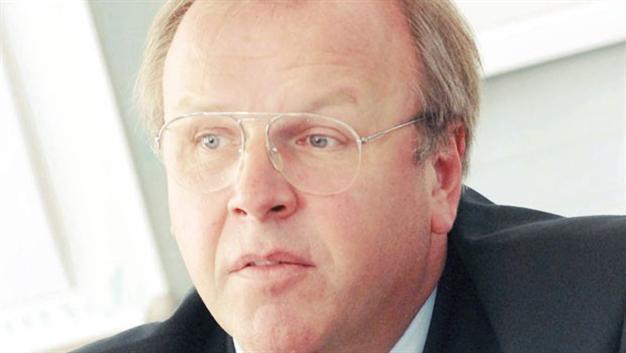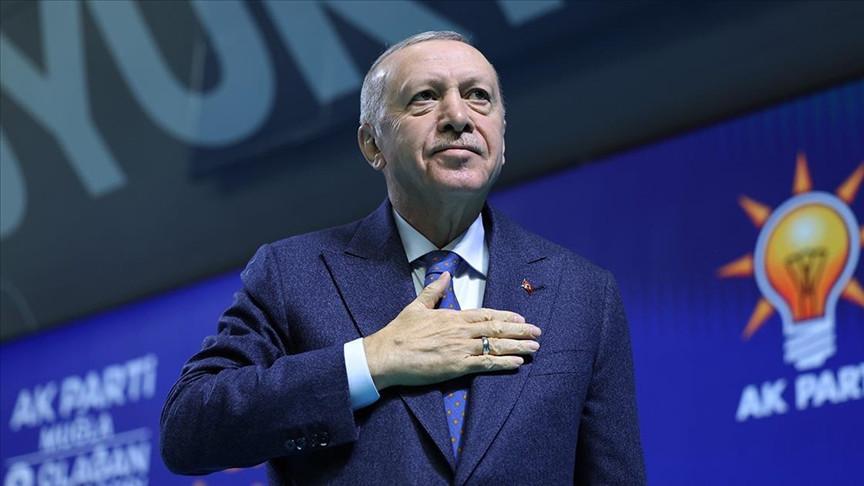German ambassador defends appearance at Cumhuriyet journalists’ trial
Emine Kart - ANKARA
 Germany’s ambassador to Turkey has defended his attendance at the controversial trial of two Turkish journalists charged with espionage, while stating that the reason for his summoning to the Turkish Foreign Ministry was not his attendance but rather his photo from the courtroom shared on social media.
Germany’s ambassador to Turkey has defended his attendance at the controversial trial of two Turkish journalists charged with espionage, while stating that the reason for his summoning to the Turkish Foreign Ministry was not his attendance but rather his photo from the courtroom shared on social media.German Ambassador Martin Erdmann’s explanation came on April 1 during a gathering with diplomatic correspondents. His messages were also posted in Turkish on the official Twitter account of the German Embassy. Those tweets were later deleted, but a photograph showing the ambassador with the correspondents was still shared on the same account.
“I acted in line with the rules. I notified [officials] of my attendance before the hearing,” Erdmann said, referring to the first hearing of the case on March 25.
Cumhuriyet Editor-in-Chief Can Dündar and Ankara Bureau Chief Erdem Gül face possible life terms on spying charges over a news report accusing President Recep Tayyip Erdoğan and the ruling Justice and Development Party (AKP) government of seeking to illicitly deliver arms bound for neighboring Syria.
Dündar and Gül were released Feb. 26 upon a Constitutional Court decision after 92 days in jail.
Diplomats from several countries including Germany, the United Kingdom, France, the Netherlands, Switzerland, Canada, Italy and Poland attended the hearing, with U.K. Consul-General in Istanbul Leigh Turner sharing images from outside the courtroom and messages of support for the journalists on his official Twitter account.
“The [Turkish] Foreign Ministry criticized my being seen in some pictures. Other than that, my attendance was not criticized,” Erdmann said.
“We will now continue to follow the Dündar-Gül case from the media, due to the secrecy decision,” he added.
The German diplomat declined to make any other statements on the record concerning the deterioration of civil rights and liberties in Turkey.
As seen in the photograph shared on the German Embassy’s Twitter account, the correspondents were each offered a German Constitution, which also included a Turkish translation. When asked why they shared copies of the constitution with the journalists, Erdmann said he wanted to refer to their constitution’s Article 5 in the event of receiving a question on freedom of expression and the press.
“Every person shall have the right freely to express and disseminate his opinions in speech, writing and pictures, and to inform himself without hindrance from generally accessible sources. Freedom of the press and freedom of reporting by means of broadcasts and films shall be guaranteed. There shall be no censorship.
These rights shall find their limits in the provisions of general laws, in provisions for the protection of young persons, and in the right to personal honor. Arts and sciences, research and teaching shall be free. The freedom of teaching shall not release any person from allegiance to the constitution,” says Article 5.
The German diplomat has actually been summoned by the Turkish Foreign Ministry twice within the last month. In addition to being summoned because the ministry argued that diplomatic representatives’ sharing of photos at the trial amounted to an intervention in the judicial process and is incompatible with the principle of impartiality, Erdmann was also summoned to protest the airing of a short satirical song, “Erdowie, Erdowo, Erdogan.” The song, which appeared on German TV, ridiculed the Turkish president over his intolerance of criticism, alleged extravagant spending, and crackdown on civil liberties.
















